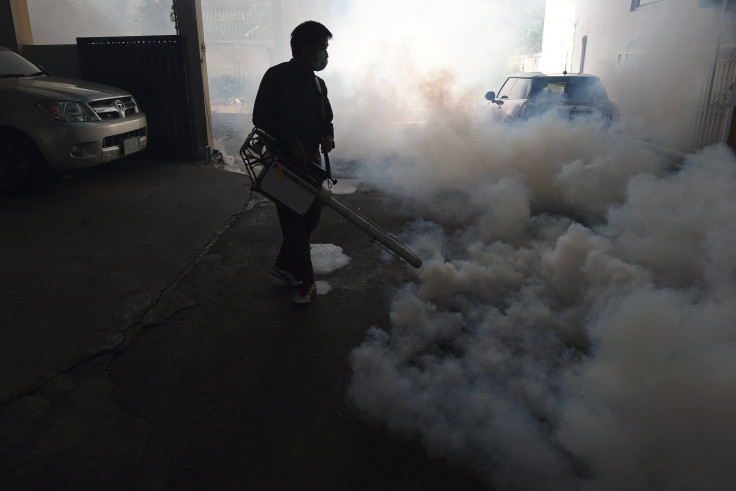Zika Virus Update: Taiwan, China’s Hainan Province May See Zika Spread With Mosquito Season Starting, Scientist Says

Prominent virologist Dr. Peter Piot warned Tuesday that Taiwan and the southern Chinese island province of Hainan face a risk of the spread of Zika virus as they have a presence of Aedes aegypti mosquito, which is believed to be the main carrier of the virus. Zika has already affected 1.5 million people in Brazil and has been spreading to several parts of South America, Central America, the Caribbean and Mexico.
The season when mosquitoes multiply has barely begun in China and Piot warned, according to the New York Times, that the ongoing threat of Zika may spread to Asian and African countries, where the disease-carrying mosquitoes are already present. The National Health and Family Planning Commission in Beijing has so far disclosed that 12 people, who had travelled outside of China, have contracted the Zika virus.
The first case of Zika virus in China was recorded in the southeastern Jiangxi province on Feb. 9 and the person fully recovered on Feb. 14. Since then, seven cases have been recorded in the neighboring Guangdong province while four cases were recorded in Zhejiang province that lies to Jiangxi’s northeast, the Times reported. One case of the virus was also recorded in Taiwan, where a young Thai man was diagnosed with Zika virus at the airport, and was not allowed to go back to his home in central Taiwan.
Taiwan has seen several outbreaks of dengue, another mosquito-related disease carried by Aedes aegypti mosquitoes. Last year, the region recorded nearly 44,000 cases of dengue, of which most were recorded in the southern part of Taiwan and almost all were due to local transmission. Due to the high number of transmissions of mosquito-related diseases, Taiwan has already started taking steps to make sure that local mosquitoes are not infected with the Zika virus.
Taiwan has also put in place a rule that any person arriving with a fever from regions like the Caribbean, Central America, South America, Thailand, the Maldives and the Philippines, will need to have a blood test to find out if they were carrying the virus for Zika, dengue or Chikungunya, another similar disease.
Dr. Lo Yi-chun, the chief medical officer of the Taiwan Centers for Disease Control, said, according to the Times, that although the Thai man landing in Taiwan was not quarantined, “if the case happens in southern Taiwan, I think we’ll have more mandatory efforts to quarantine,” adding: “It’s case by case.”
Piot warned that the Zika virus may become a threat in Asian and African regions where the mosquitoes carrying the virus are possibly present. “If it can happen in Latin America,” Piot said, according to the Times, “I don’t see why it can’t happen in other parts of the world.”
The World Health Organization (WHO) said Tuesday that the Zika virus could be spread through sexual transmission more easily that was thought earlier. Several countries have already reported cases of sexual transmission of the Zika virus.
WHO Director General Dr. Margaret Chan, according to BBC, called the situation “alarming” and said “reports and investigations in several countries strongly suggest that sexual transmission of the virus is more common than previously assumed.” She also said that microcephaly — a condition in which babies are born with abnormally small heads — is one of the conditions linked to the Zika virus. Another condition linked to the Zika virus is Guillain-Barré Syndrome (GBS), which has been reported by nine countries. The condition can cause temporary paralysis and death.
In the U.S., over a dozen cases are being investigated for the possibility of being sexually transmitted. Dr. Anthony Fauci, the director of the National Institute of Allergy and Infectious Diseases leading the U.S. government's research program, said last week that a vaccine for the virus could be ready for human trials later in 2016, according to BBC. Testing of DNA vaccines would start by September, he hoped.
© Copyright IBTimes 2025. All rights reserved.






















